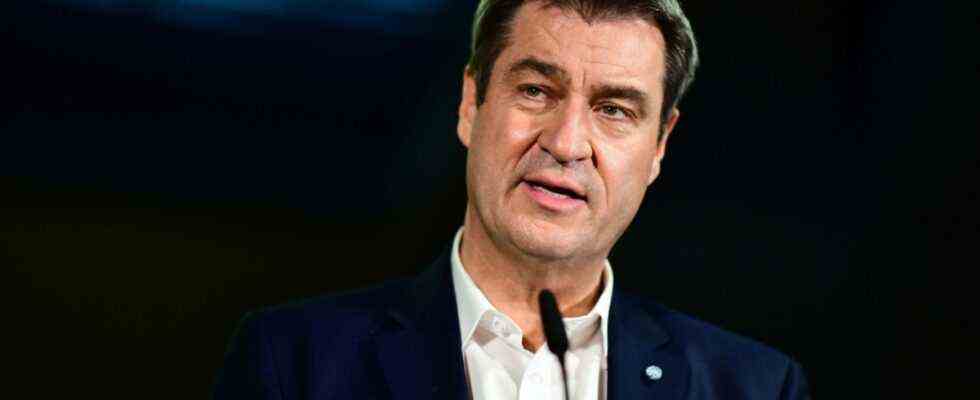31.7 percent. For the CSU it is the worst result in a federal election since 1949, in other words: devastating. In early summer, Bavaria’s Prime Minister Markus Söder demanded that the Union should land “well over 30 percent” nationwide. This goal was far from being achieved. The CSU made it through this mark in Bavaria, but lost 6.3 percentage points compared to the previous federal election. In 2017, the Christian Socials reached 38.8 percent.
Surveys in recent weeks have repeatedly predicted that this crash could occur. The party just didn’t really want to believe that, the fluctuations were too great. And now? How can the renewed loss of votes after the state elections in 2018 be explained?
Governing without direction: That seems strange with the party, which once did not want to tolerate anything or anyone on the right, but it poses a problem in several ways. For 16 years, the CSU was also the ruling party in Berlin, but you never knew whether its representatives would be behave so cautiously – or whether in the next moment they will not stand up for Bavaria’s interests alone. The phenomenon is by no means new, but it has always been problematic for the CDU.
What is worse for the CSU itself is that the course within the party is also unclear or, in the eyes of some party members, simply wrong. And Markus Söder has been setting this course for several years now. The CSU should become younger, greener and more metropolitan. For some it goes too slowly, for some it goes too far – and many wonder what that actually means. Because you don’t hear much more than this formula from Söder, a wobble between renewal and stability. Even some die-hard CSU members no longer know in which direction to march at all.
Söder’s one-man show: Since Markus Söder has ruled the CSU and the Free State in personal union, there is hardly any room for other heads in the party. Horst Seehofer, the former Prime Minister and most recently the Federal Minister of the Interior, has long since ceased to be a draft horse in elections. So who did the CSU want to score points with in the federal election? Dorothee Bär, who was most recently appointed to Armin Laschet’s future team? Alexander Dobrindt, who, as head of the regional group, gives the sharp hardliner? Andreas Scheuer, who as the Federal Minister of Transport has seldom made a positive impression? Most often, Söder himself was loudly in the foreground. But that apparently didn’t help much on the ballot paper.
Competition from Aiwanger and Co: Already in the state elections, the CSU had to give up painful percentage points to the Free Voters (FW). Now FW boss Hubert Aiwanger wanted to expand his sphere of activity and move into the Bundestag. That did not work, but one can assume that the 7.5 percent that his Free Voters received are for the most part the votes of former CSU voters. Looks marginal, but does matter. Because a total of 47 parties and groups ran in this federal election – most of which had no chance of really moving into parliament. However, many votes were cast in the “Other” category, which the major parties were still happy about a few years ago. For example the CSU.
The Chancellor candidate Armin Laschet: At first it took months before the Union could commit to a candidate, then another few weeks passed before the CSU no longer campaigned against CDU man Laschet. It has only been possible to speak of a uniform appearance since the CSU party congress in Nuremberg. Too bad that it only took place two weeks ago and that many voters have long since ceased to be interested in the sisterly taunts.
Before and since the CDU decision in favor of Laschet, Markus Söder did not necessarily behave in a sovereign manner, but rather acted as a grandmaster of political teasing – his predecessor would have said: filthy. That may have been the opinion of many people in Bavaria – according to a survey, only about 17 percent were recently satisfied with Laschet – the common cause of the CDU and CSU has done Söder no favors. What does the Union get out of it? 24.1 percent in the federal election.

